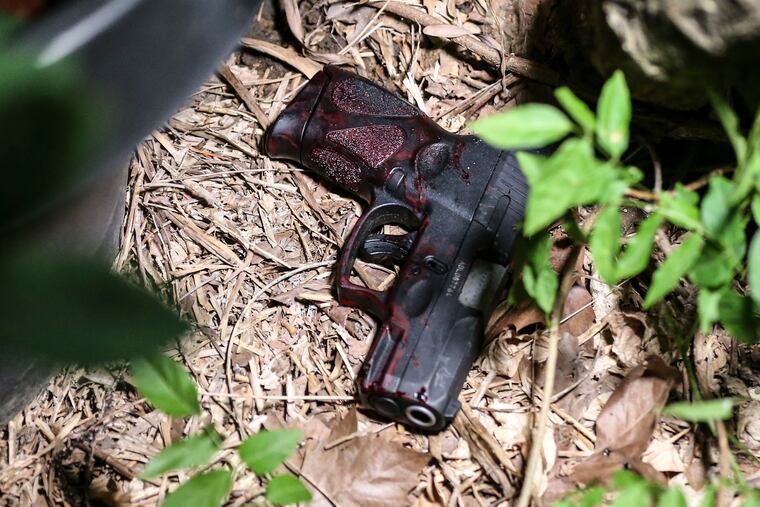Gun buyback programs in Philly should expand | Opinion
We must offer at least $1,000 for automatics and ghost guns and $500 for revolvers.

Blaming the police or screaming “stop the violence” is not enough to stop the killings. Let’s forget the law enforcement task forces and warm-and-fuzzy marches and get to the business of getting guns off the streets of Philadelphia. Our streets are a sea of firearms easily accessible to urban youth who, in turn, are driving the homicide rate. We must get them out of their hands. To do this, the city needs to expand gun buyback efforts to buy more of them at or above black market prices.
Typical black market prices for an automatic gun are between $800 and $1,000. The price for a revolver or a “throwaway” is between $300 and $500. At those prices, $1 million would be enough to buy at least 1,000 firearms and make a significant reduction in the roughly 300 murders this city sees annually. Philadelphia, it’s time to put our money where our mouth is and embrace data-driven decisions.
» READ MORE: How can you get unwanted firearms out of your home?
Over the past 30 years, can statistically significant decreases in the average number of homicides in Philadelphia be attributed to law enforcement? From 1990 to 2020, have there been lasting decreases in gun violence that have been associated with any “Stop the Violence” campaign? The answer to both questions is no.
When we look at gun violence in Philadelphia, we must recognize the driving causes. They are the structural violence that has plagued us for decades, the cultural violence that has normalized it, and the direct violence we see in the news. All three are interrelated. Structural violence represents the formal and informal systemic ways in which Philadelphians in certain zip codes are hindered from equal access to opportunities, goods, and services to meet their basic needs. Cultural violence represents the social norms that make the gun violence we see on the news seem natural or inevitable. Cultural violence is what makes structural violence a lot like carbon monoxide, a silent killer — for example, the belief that Black people in certain zip codes are inevitably more dangerous, which has historically given sanction to less concern for their lives, police brutality, and mass incarceration.
What further complicates things is subcultures embodied in part by street code, a get-rich-or-die-trying lifestyle that can manifest as a disregard for human life. It’s a phenomenon that many young Black men encounter as early teens and exit around 27 years of age, as dramatized in popular films such as Super Fly or Menace II Society.
Philadelphia, we must be thoughtful enough to understand that we would do well to consider and address the social conditions that shape the value systems of many who live in zip codes where the health, wealth, and educational disparities are the most severe. It’s not as if these disparities have not been thoroughly articulated for us by professionals with the loudest voices in the research. David Berliner breaks down the achievement gap, David Ansel spells out disparities in health care and death rates, Bryan Stevenson demystifies the justice gap, and Shawn Rochester makes plain the historical origins of the wealth gap.
Let’s stop playing games. There were 2,200 people shot in 2020, and this year Philadelphia passed the grim mark of 10,000 people shot since 2015, with three-quarters of victims being Black males. We must think outside the box. We need to sweeten city gun buyback offers, which currently do not take in enough guns nor offer enough money for them.
» READ MORE: Philadelphia’s gun violence prompted this mother of three to host a buyback program
Yes, for prevention, we also need to fund culturally competent social programs that reduce violence in the long run by addressing the underlying disparities of health, wealth, and education rooted in structural violence. But we also need to get guns out of the hands of our youth immediately.
We must offer at least $1,000 for automatics and ghost guns and $500 for revolvers. Those who oppose this are not wearing their thinking caps — the cost is but a fraction of the price needed to prosecute a homicide case or to incarcerate someone convicted of homicide for the rest of their life. Moreover, there is no price comparable to one life saved.
Jonathan Wilson Jr. is the executive director of the Fathership Foundation and holds a doctorate in education. He is a social worker, researcher, resident of Southwest Philadelphia, and four-time survivor of gun violence who is now confined to a wheelchair.